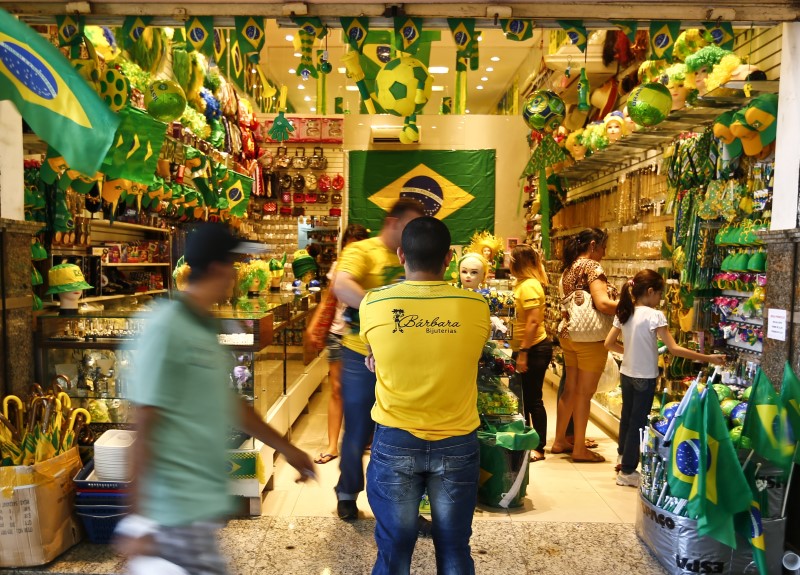By Silvio Cascione
BRASILIA (Reuters) – Brazil’s economy shrank for a sixth straight quarter between April and June, but investments grew for the first time since 2013 and fueled hopes of a modest recovery following the likely ousting of President Dilma Rousseff on Wednesday. Gross domestic product fell 0.6 percent in the second quarter compared with the first, statistics agency IBGE said on Wednesday, slightly more than the 0.5 percent drop expected by economists in a Reuters poll. Investments rose 0.4 percent though, in the first increase after 10 straight quarters of contraction. Brazil’s industrial output also hit an inflection point, edging up after shrinking for five consecutive quarters. “We’ve hit bottom in the second quarter,” said José Francisco Gonçalves, chief economist at Banco Fator, in Sao Paulo. “We may see the economy stabilizing in the third quarter, and some growth in the fourth.” Optimism over the end of Brazil’s worst recession in decades could boost interim President Michel Temer’s popularity as he gears up to propose pension and labor reforms, which investors see as crucial to reestablish the nation as an emerging markets star. Temer is set to be confirmed in office later on Wednesday after the Senate votes to dismiss Rousseff over charges she broke fiscal rules.
The downturn, one of the world’s most severe since the 2008 crisis, has left 1.7 million workers unemployed over the past 12 months and cost the nation its hard-won investment-grade credit rating. The economy is still expected to contract more than 3 percent in 2016 before growing 1.2 percent in 2017, according to market forecasts that have been upgraded in recent weeks. “The economy is already responding to the government change,” said Cristiano Oliveira, chief economist at Banco Fibra, who expects the economy to rebound 2.1 percent in 2017.
Oliveira’s forecast assumes the approval of economic reforms in Congress and a series of interest rate cuts in coming months. The central bank meets later on Wednesday and is expected to leave its benchmark rate on hold at 14.25 percent for now, at its highest level in nearly a decade, as inflation remains stuck at around 9 percent. While investments and industrial output signal an imminent recovery, unemployment will probably continue to drag on consumption, which accounts for most of Brazil’s output. Household consumption fell 0.7 percent in the second quarter, its sixth consecutive drop. A stronger currency may also cap Brazil’s growth in coming quarters by making local goods less competitive. Imports grew 4.5 percent in the second quarter, outpacing exports growth as the Brazilian real strengthened 22 percent this year on market optimism over Rousseff’s impeachment. “The challenges in front of the new economic team are big. All the bets are on investments, given that family consumption, government spending and exports tend to have a neutral effect in the best-case scenario,” Andre Perfeito, chief economist at Gradual Investimentos, said in a note. Brazil’s gross domestic product fell 3.8 percent from a year earlier, according to IBGE.
(Additional reporting by Patricia Duarte; Editing by Meredith Mazzilli)
Brazil’s economy shrinks for 6th quarter but signals recovery

By Silvio Cascione





















